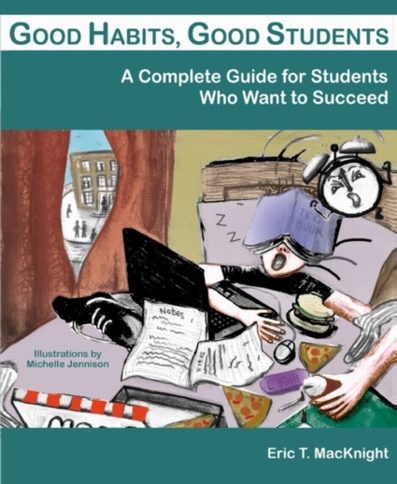Many uninspired students lack confidence. Somehow they have come to believe that they are not good enough to succeed. “I’m no good at math,” one may say. “I’m no good at writing,” says another. “I’m just a terrible student,” says the one who has given up altogether.
If you are one of these students, you will have your own story or series of stories about how you reached this point: painful memories, perhaps, of failures or lost competitions or inability to keep up. Behind all these, however, lie some fundamental assumptions—some deeply-held beliefs so firmly embedded that we may never have questioned them. Together they produce an argument that goes something like this:
Some people are smarter than other people.
Some people are good at math and science, but not English and history.
Some people are good at English. They love reading and writing, but they are no good in math and science.
Some people are no good in math, science, English, and history. They are just no good in school.
You cannot make yourself smarter. Intelligence is something you are given at birth. Or not.
You cannot make yourself into a good math student if your strength is writing essays and poems. You cannot make yourself into a poet or a lover of literature if your strength is in math and physics. You cannot make yourself into a good student if you are just no good in school.
If you agree with these statements, or most of them, you are probably from Europe or America. If you disagree with most or all of them, you are quite possibly Asian. In other words, such beliefs are quite widespread in the West, but in Asian cultures people generally hold different beliefs. The Asian view might be summed up this way:
Intelligence is like a muscle: it gets stronger with exercise.
If reading and writing are more difficult for you than math and science, then you must work harder at reading and writing. If math and science are more difficult for you, then you must work harder at math and science.
If you find all subjects difficult, then you must work harder in all subjects.
You will only improve through hard work, in the same way that your muscles will become stronger only if you exercise them. If you work hard enough, for long enough, you can succeed in any subject.
Teaching in two different international schools in China, I saw these beliefs in action. Asian students who struggled in my classes usually responded to low grades by working even harder. European or American students were much more likely to respond to low grades by giving up.
If you are one of those students who is inclined to give up, or who has already given up, you should know that science, so far, agrees with the Asian side of the argument. The statement that “Some people are smarter than other people,” for example, cannot be verified by science. We do not even know what intelligence is, much less how to measure it. You may resort to “common sense” and say, “Well, okay, but just look around. It’s easy to see that some people are smarter than others.” Even if we accept this assertion, however, we still don’t know whether these differences were there from birth, or whether they result from different levels of effort. Think again of the muscle-bound body-lifter: he was not born that way.
One thing is clear: students who believe they can improve through hard work do better than those who believe that no improvement is possible, however much they work. As Socrates says in one of Plato’s dialogues, “the belief in the duty of inquiring after what we do not know will make us better and braver and less helpless” (Plato’s Meno, tr. W.R.M. Lamb).
Don’t let anyone tell you that you’re no good, that you cannot learn, that you cannot improve. Put simply, these are terrible lies. Perhaps you are a very weak student today, but you need not be a very weak student a year from now. Imagine someone who cannot complete even a single push-up. Would you tell him, “Well, you’re just no good at push-ups. Don’t even try. Do something else instead”? Of course not.
Start where you are. Work hard. Accept the fact that improvement will be slow. Ask for help. In time, with effort, you will succeed. Don’t give up! You can do it.





